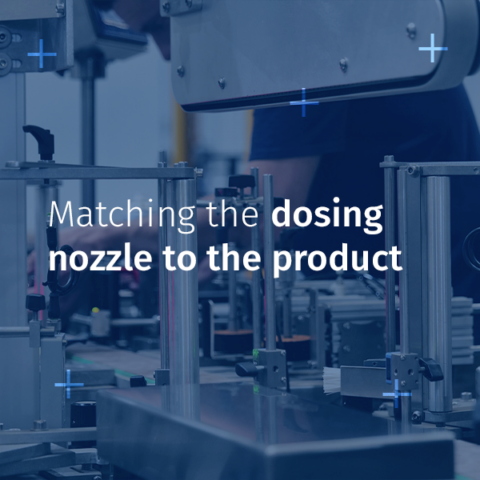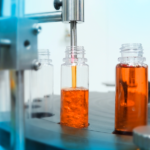The dosing nozzle plays a key role in the filling process. Designed to deliver accurate and consistent product flow, it ensures controlled dispensing, whether the product is liquid, viscous, or foamy. Selecting the right type of nozzle based on the product’s characteristics is essential to ensure efficiency and packaging quality.
What is a dosing nozzle?
A dosing nozzle is a mechanical component that controls the exact amount of product dispensed into each container. Depending on the product’s properties, the nozzle is selected to provide consistent flow and precise dosing. It helps prevent overflows, product waste, and uneven filling, making it a critical part of any efficient filling system.
Types of dosing nozzles
- Nozzles for liquids
These are designed for thin, free-flowing products like juices or oils. They provide smooth, continuous flow while minimizing splashing and spillage, making them ideal for applications that demand high accuracy.
- Nozzles for viscous products
Thicker substances such as creams, gels, or sauces require nozzles built to handle dense textures without clogging. These nozzles ensure consistent flow and precise control, even with high-viscosity materials.
How to choose the right nozzle
Selecting the appropriate nozzle depends directly on the type of product being filled. Key factors include:
- Viscosity: The thicker the product, the more specialized the nozzle must be to prevent clogging.
- Density and flow behavior: Some products flow naturally, while others require pressure or assistance.
- Required accuracy: Industries like cosmetics or pharmaceuticals demand extremely precise filling.
Using the wrong nozzle can lead to overfilling, product loss, and inconsistent packaging results.
A important component for efficient filling
Far from being a simple accessory, the dosing nozzle is a vital part of a reliable, clean, and consistent filling operation. Choosing the nozzle that matches your product’s characteristics not only ensures dosing accuracy but also boosts overall production performance.
Have a project or need advice on dosing solutions? Contact our team!







